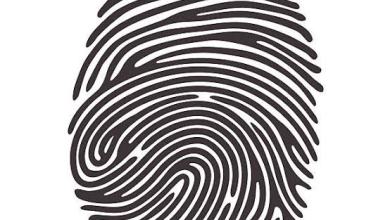|
Getting your Trinity Audio player ready...
|
Claim: Gossip blog Gistlover, in a viral Facebook post, claimed that AC water is equivalent to distilled water, making it suitable for batteries and laboratory use.

Verdict: False. DUBAWA found that AC water is not equivalent to distilled water and is unsafe for use in batteries or scientific experiments. The claim misrepresents both the chemical purity and commercial value of AC condensate.
Full Text
Recently, a claim about the water in Air Conditioners (AC) has been trending across Nigerian social media. The claim is that water collected from an AC is equivalent to distilled water and can be reused for technical purposes or sold for a profit. This claim has appeared on TikTok, Facebook, and Nigeriannewsdirect.com.
Nigerian gossip blog Gistlover shared a similar claim on its Facebook page on June 23, 2025, stating that water from air conditioners is useful for batteries and scientific experiments, urging people to sell it instead of throwing it away.
The post reads, “If you have been throwing away AC water, then you have been losing millions of naira. Water for air-conditioning, also known as distilled water, is used for refilling tubular batteries and for scientific experiments. With 5 litres of it going for as low as 5000 (retail), better start selling your air conditioner water today.”
By June 17, 2025, the post had garnered over 2,000 reactions, 846 comments, and 92 shares. Many users tagged friends, expressed interest, and discussed the possibility of collecting and selling AC water.
Agorsor Godwin Kojo Dzadzagonor wrote, “Jude Boison, make money with it and stop using it to flush.”
Godfrey Daniel claimed, “It’s so shocking that Nigerians don’t know about this booming business. AC water is condensed water that contains a high level of concentrated nitrogen. Fifty litres of pure, clean AC water can cost you up to ₦ 540,000. It’s hot cake.”
Preccy Precious Page added, “Those days in chemistry lab, if we couldn’t get distilled water for our reactions, we used AC water and the result would be the same.”
However, others expressed doubts. Akeem Babatunde Daramola responded, “It’s not the same as the distilled water used for tubular batteries. Me wey our branch get 27 ACs, which work almost every day—you con dey prank.”
This claim, which has spread beyond Facebook to WhatsApp and online forums, raised concerns, as the post could mislead people into using unsafe water in batteries or engaging in unverified sales.
Due to the claim’s virality and potential risks, DUBAWA conducted a fact-check.
Verification
DUBAWA found that although air conditioner water results from condensation, a process that may appear similar to distillation, it is not chemically or microbiologically equivalent to distilled water.
Distilled water is produced by boiling water and collecting the steam, effectively removing dissolved minerals, biological contaminants, and other impurities. In contrast, AC condensate forms when moisture in the air condenses on cold evaporator coils. As it travels through the air conditioning system, it can become contaminated with dust, rust, plastic particles, and microbes, making it unsuitable for use in batteries or scientific experiments.
Further research indicates that AC condensate frequently contains microbial contaminants, including harmful bacteria such as Legionella and Mycobacterium, which thrive in damp AC systems. These impurities render the water unsafe for use in batteries, scientific experiments, or any application that requires sterile, high-purity water.
Experts Weigh in
Adegoke Borisade, a research fellow at the Centre for Energy Research and Development, Obafemi Awolowo University, Ile-Ife, explained that laboratory-grade distilled water is produced through a stringent process of boiling, condensation, and filtration to ensure its chemical purity and safety. He cautioned against using AC condensate as a substitute, noting that it is neither sterile nor chemically refined.
“AC water may appear clean, but it often contains dust, trace metals, and microbes from the system. Using it can compromise experimental accuracy, damage equipment, and even pose health risks,” he warned.
Adegoke explained that distilled water for scientific use must meet certified national and international standards, which AC water does not. He said, “Distilled water must go through approved processes and comply with standards like the United States Pharmacopoeia–National Formulary (USP-NF), the Chemical Abstracts Service (CAS), and the American Society for Testing and Materials (ASTM). In Nigeria, the Standards Organisation of Nigeria (SON) enforces these through the Mandatory Conformity Assessment Programme (MANCAP) to ensure safety and quality.”
Adebayo Abolore, an Engineer with Florex Apex Nigeria Limited- a solar company based in Ibadan, South-West Nigeria, warned against using air conditioner water in tubular batteries. He noted that only distilled water should be used because it is chemically refined and safe for battery cells.
He said, “Distilled water is the best water to refuel the tubular battery. Using AC water will kill off the cells inside the battery. It is not ordinary water or condensate; it is well-refined, particularly in terms of purity.”
Conclusion
The claim that AC water is distilled and suitable for laboratory or battery use is false. Experts and DUBAWA’s findings confirm that AC condensate contains impurities and does not meet required purity standards. It is unsafe for scientific or technical use, and promoting it as such is misleading and potentially harmful.







